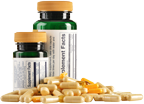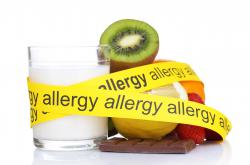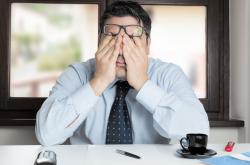Causes of Tiredness
There are a number of causes of tiredness. Some are medical conditions, and others are lifestyle choices e.g. nutritional or sleep deficiencies. Here, we will look at the latter; for more information on medical causes of tiredness, please see Conditions that cause tiredness.
There are a number of causes of tiredness. Some are medical conditions, and others are lifestyle choices e.g. nutritional or sleep deficiencies. Here, we will look at the latter; for more information on medical causes of tiredness, please see Conditions that cause tiredness.
What is causing your fatigue?
It may take a little time and some detective work to find out the cause of your tiredness. It is worth it, however, because if you don’t, your fatigue may develop into a medical condition, which may take more time to resolve. It is also important to rule out any underlying medical conditions. This must be done with the help of a physician.
Here are some common causes of tiredness:
Toxins
There are various toxins which we are exposed to in the environment as well as in our food. Part of the liver’s function is to remove the toxins from the body, but eventually the liver may become overtaxed; it will perform less well and you’ll need to find a way to help your body to detoxify.
[Please see Tiredness and exposure to toxins for more information.]
Lack of sleep or poor quality of sleep
Some people sleep long enough, but the cycles and phases of their sleep are interrupted. You need 60 -90 minutes for each cycle of sleep to be successfully completed and, if you are wakened mid cycle, you will experience grogginess and disorientation, and consequent lack of ability to concentrate the following day. Other people may just not allow themselves enough sleep. You should aim for 8 to 9 hours, though individual needs vary.
[Please see Cycles and phases of sleep for more information.]
Eating processed food
Processed food and fast food often contain sugar and sodium, both of which tend to cause cravings for more, which can upset your blood sugar levels and cause fatigue after an initial high. They are one of the causes of hypoglycemia, along with high glycemic index foods. Most processed foods also contain a huge number of additives, some of which are extremely harmful to your health. The body has to spend both energy and nutrients to process these substances. So as well as exposing yourself to potential toxins, you also deplete yourself of vital nutrients. It is best if you avoid irradiated and genetically modified (GM) food as well.
[Please see Why high glycemic index foods make you tired for more information.]
Food allergies
Food allergies seem to be on the rise probably because of some of the practices of modern agriculture. Allergies usually involve the release of histamines, which in turn provokes the adrenal glands to release cortisol. The more allergic you are, the more the adrenal glands have to work and the greater is the risk of adrenal exhaustion. Many people with chronic fatigue suffer from food allergies, which is why it’s worth trying to find out what you are allergic to by using the elimination diet [which is described in detail in Tests and diets for food allergies.]
Lack of nutrients
Certain nutrients are essential for health. These include: vitamins, minerals and some amino acids. If you ate a perfectly balanced diet of food which was produced in the best conditions, without fertilizers or pesticides, and grown on soil that was rich in minerals, you probably wouldn’t need to think about supplements. Your diet would provide all that you need. But most of us don’t have that luxury. So you may need to add a high quality all-round vitamin pill and, quite possibly a mineral supplement as well.There are also additional supplements that help with specific deficiencies and other conditions.
[Please see Healthy diet for when you’re tired and Supplements for fatigue for more information.]
Continuous stress
Continuous stress puts a huge strain on the body, in particular on the adrenal glands. We were not designed for the long-term stress, but for short bursts of speed, enabling us to fight a predator, or else run away from one.The stresses of 21st century living are far more pervasive and can seem never-ending.The adrenals produce more and more adrenaline, a job they were not designed to do in the first place and become depleted.
Stress can be overcome by learning relaxation techniques, making room for priorities in your life, and cutting out things you don’t need, adopting a philosophical or prayerful attitude to life (according to your convictions), meditating, spending time with friends and family.
[Please see Self help tips for adrenal fatigue and Stress and tiredness for more information.]
Lack of exercise
Not only does exercise build muscle, it also increases energy and helps improve low mood.Your joints become more flexible (especially with an exercise like yoga) and your whole system receives more oxygenated blood, helping you to excrete toxins and keep your cells in good repair. Good quality sleep is enhanced, and ageing delayed. Cognitive process and brain function are also improved, making you more intellectually effective.
Without exercise, cells become less well-oxygenated, muscles and joints deteriorate, and heart and brain function less well. So, in order to relieve fatigue, gentle exercise is a must.
Please see Exercise and fatigue for more information.]
Dehydration
Lack of water is a common cause of both fatigue and headaches. You should aim for eight 8 ounce glasses of water each day. If you take alcohol or coffee, you should drink even more than this as both have dehydrating effect on the body.
[Please see Tiredness and dehydration for more information.]
Prescription medications
Although prescription medications are sometimes necessary, they are often over-used. Some of the side-effects include: fatigue, loss of vital minerals and vitamins, stress on the liver, allergic reactions, and the creation of leaky gut syndrome.
Around 109 of the top 150 prescription drugs have the potential to cause fatigue, either directly or indirectly. Be especially aware of this side-effect if you are prescribed: sleeping pills, antihypertensive, beta-blockers, tranquillizers, antidepressants (particularly tricyclics), diuretics, antibiotics, or antihistamines.
Find alternatives if you can. If this is not possible in the short term, make sure that you take plenty of water, and avoid caffeine and alcohol. Try to relax every day and take moderate exercise. Eating a good diet with plenty of fresh, live, unprocessed food will also help.
[Please see Medications that cause tiredness for more information.]
Stimulants
There are several stimulants which appear to relieve tiredness, but actually perpetuate it in the longer run. They give a quick burst of energy and then let you down with a jolt. Alcohol and nicotine have this effect, as does caffeine, which is present in coffee, tea, and cola drinks. All these substances can easily become addictive, which means that more and more of the substance is needed to produce the same effect.
If you feel you need to have coffee every day in order to function properly, always drink it with food and take cream in it (not artificial creamer) as the oils in the cream lower the negative effective of the caffeine.
[Please see Caffeine and tiredness for more information.]










.jpg)









Leave a comment